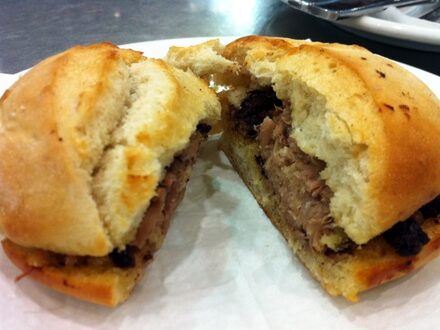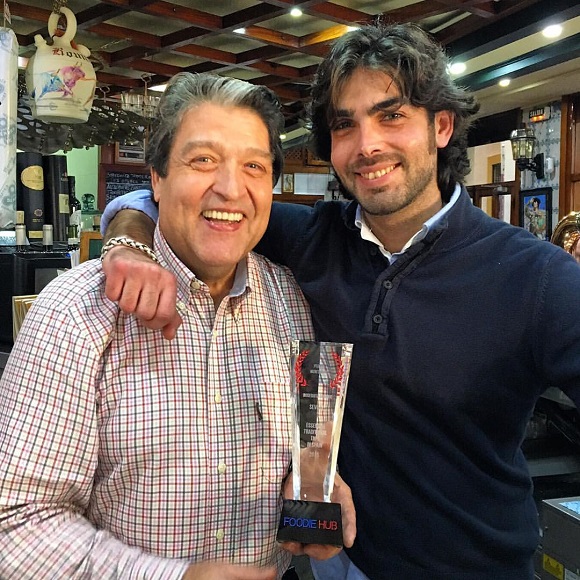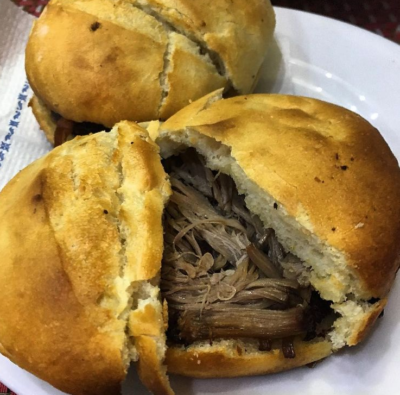Montadito de Pringa
Montadito de Pringa or just Pringa is a sandwich of tender stewed pork shoulder, chorizo (spicy sausage) and black pudding, served in a hot toasted bun. A perennial local favourite with lots of history. According to tastecooking.com after the Reconquista of Andalusia by the Christians, different religions were not tolerated. The Muslims and Jews who were baptised were able to stay to the city but many of them continued to follow their religion in secret.
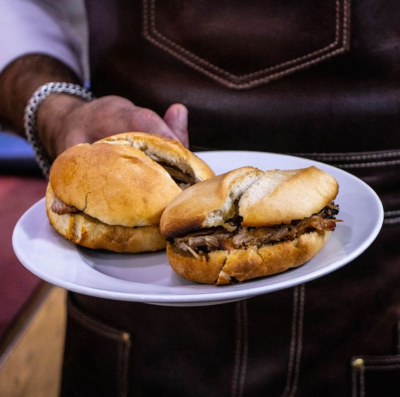
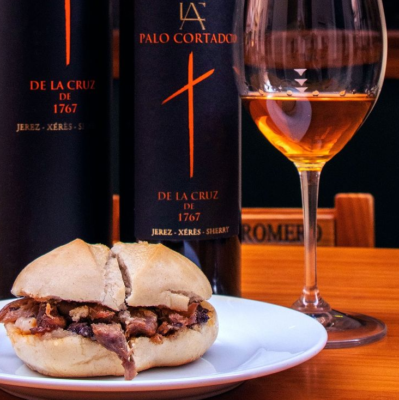
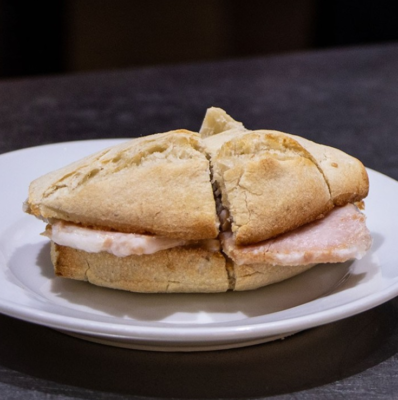
Outward symbols of conversion became key to superficial acceptance. In many instances, this came down to pork. Government inspectors would storm in on the suspected Jews and sniff out traces of heresy. If there wasn’t pork on the table, the Jews’ conversion was deemed a sham, and they could be burned at the stake.
As a survival mechanism, Muslims started to eat pork. Jews started hanging cured hams from their windows. They cooked their vegetables in lard. And they threw ham hocks, pig bones, and chunks of belly into their sacred lamb, garbanzo, and vegetable stew called adafina. The meat, or pringá, was eaten separately, and the garbanzos and broth were used for a week’s worth of enriching stews and soups, cooking grains and veggies, or sipping on its own.
If you want a taste of some of the best Montadito de Pringa then you should try Bodeguita Romero. This place is more than 70 years old. First opened by Don Antonio Romero Hijón in 1939 in the old Encarnación Market, it is now run by his son Pedro Romero in Calle Harinas. Don Antonio’s little bar grew and prospered, and after the war, he opened another in Calle Imagen that he called “La Española”.
In 1949 Bodeguita Romero was established in Calle General Polavieja, where it achieved great popularity over nearly three decades, becoming a “must-stop” for young students and old folk who drank sherry and ate peanuts in its homely and traditional atmosphere. In 1977, it moved to its present home in Calle Harinas in the Arenal neighborhood, where it has maintained its popularity thanks to the hard work and dedication of Pedro Romero and his wife Angeles .
